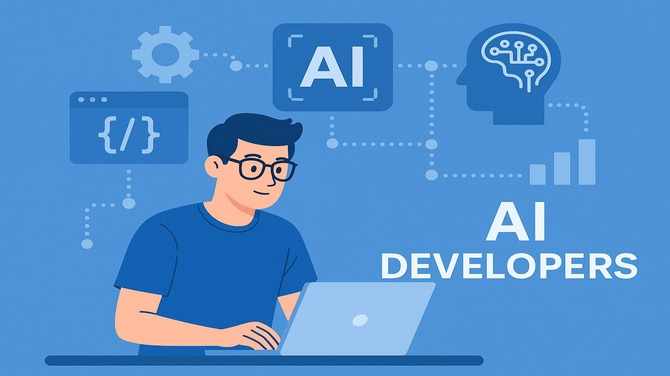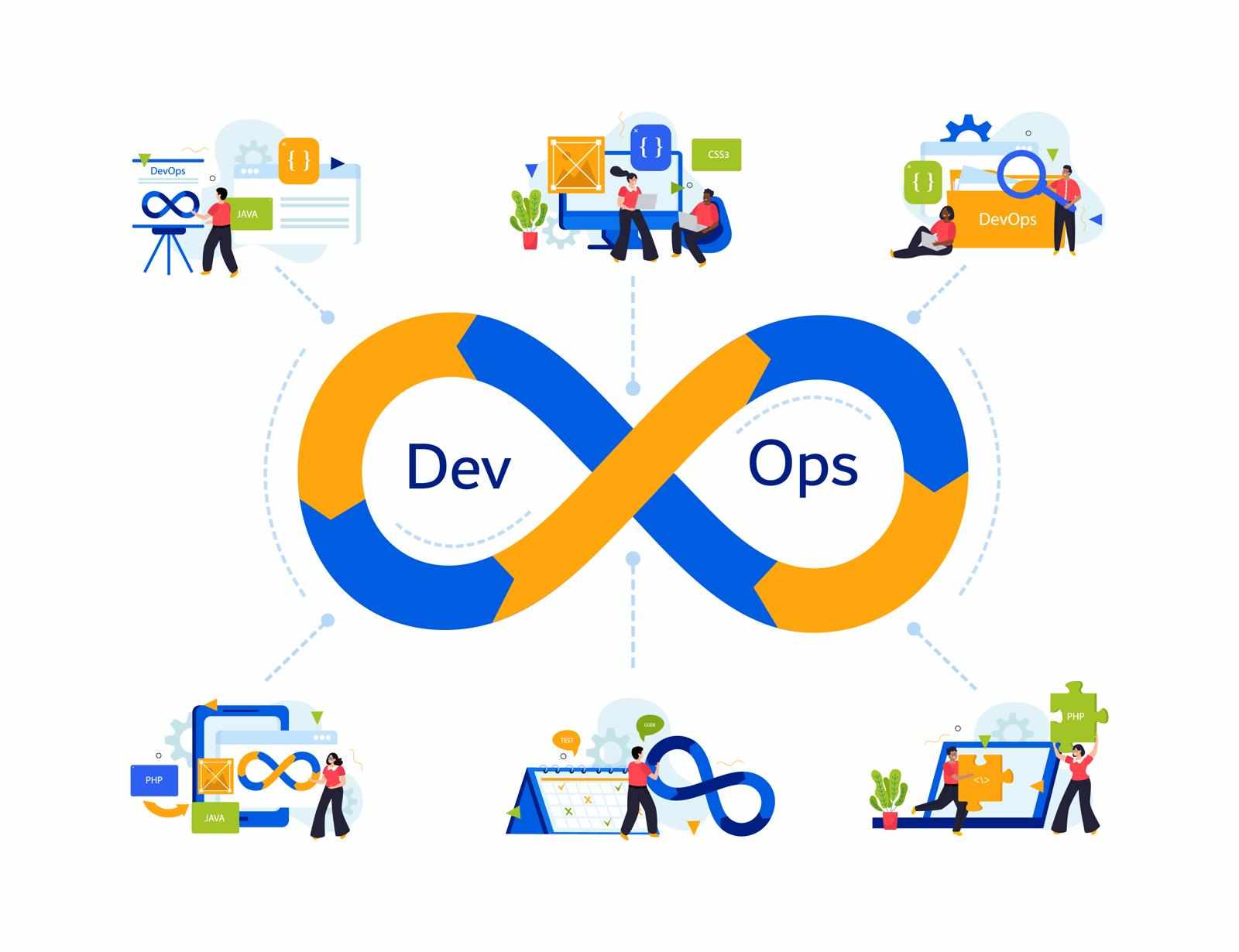
The fintech industry has reached a critical turning point where artificial intelligence determines success or failure. Startups across the financial technology sector are engaged in an intense battle to hire AI developers, creating unprecedented competition for skilled professionals who can transform traditional financial services.
This talent war reflects a broader shift in how financial technology companies approach innovation and customer experience.
The stakes couldn't be higher for fintech startups. Those that successfully build AI development teams gain significant advantages in automation, customer insights, and operational efficiency. Meanwhile, companies that fail to secure artificial intelligence talent find themselves struggling to compete in an increasingly automated marketplace where customer expectations continue rising rapidly.
The Fintech AI Revolution Driving Talent Demand
Financial technology companies are experiencing explosive growth in AI adoption, fundamentally changing how they deliver services and compete for market share. The numbers tell a compelling story of transformation happening across the industry.
Over 50% of companies plan to incorporate AI technologies in 2024, with fintech leading this charge due to the data-rich nature of financial services and the immediate impact AI can have on customer experience.
This surge in AI adoption has created an unprecedented demand for skilled developers who understand both artificial intelligence and financial services.
The complexity of implementing AI in regulated financial environments requires specialized knowledge that traditional software developers often lack. Fintech startups need professionals who can navigate compliance requirements while building cutting-edge AI solutions.
Machine Learning Applications Transforming Financial Services
Fintech companies are deploying machine learning across multiple business functions, from fraud detection to personalized investment advice. Credit scoring algorithms now analyze alternative data sources, enabling faster loan approvals and better risk assessment.
Customer service chatbots handle routine inquiries, while sophisticated recommendation engines suggest financial products based on individual behavior patterns.
Payment processing systems use AI to identify suspicious transactions in real-time, protecting both businesses and consumers from fraud. Investment platforms leverage algorithmic trading to optimize portfolio performance, while budgeting apps use predictive analytics to help users make better financial decisions.
Current Market Dynamics and Competition Intensity
The competition to hire AI developers in fintech has intensified dramatically as startups recognize the strategic importance of artificial intelligence capabilities. The fintech sector experienced a 44% surge in job vacancies, driven by venture capital investment and AI, highlighting the unprecedented demand for skilled professionals in this space.
Fintech companies are increasingly seeking candidates with specialized skills in areas like blockchain, AI/ML, cybersecurity, and data analytics, creating a highly competitive environment where startups must offer compelling packages to attract top talent.
This competition has driven up salaries and extended recruitment timelines as companies search for the right technical fit.
Talent Shortage Impact on Startup Operations
The scarcity of qualified AI developers has created significant challenges for fintech startups trying to scale their operations. The most prominent reason cited is talent skill gaps, accounting for 46 percent of these responses, with many startups struggling to find professionals who combine AI expertise with financial services knowledge.
This talent shortage affects product development timelines, forcing startups to prioritize AI projects carefully and sometimes delay important features. Companies that cannot hire AI developers often find themselves dependent on expensive consultants or struggling to implement AI solutions that meet their specific needs.
Strategic Advantages of AI Development Teams
Fintech startups that successfully hire AI developers gain multiple competitive advantages that extend far beyond immediate operational improvements.
Internal AI teams develop deep understanding of the company's unique challenges and customer needs, enabling them to create custom solutions that generic software packages cannot match. This customization often provides sustainable competitive advantages in crowded fintech markets.
AI development teams also accelerate innovation cycles within fintech startups. They can rapidly prototype new features, test innovative concepts, and iterate based on user feedback. This agility becomes crucial in fast-moving fintech markets where customer expectations evolve quickly and new competitors emerge regularly.
Customer Experience Enhancement Through AI
Skilled AI developers enable fintech startups to deliver personalized experiences that traditional financial institutions struggle to match. They build recommendation systems that suggest relevant financial products, create intelligent interfaces that simplify complex financial decisions, and develop predictive models that anticipate customer needs before they arise.
These capabilities help fintech startups differentiate themselves in competitive markets while building stronger customer relationships. AI-powered personalization increases customer engagement, reduces churn, and creates opportunities for cross-selling additional services.
Funding and Investment Driving AI Talent Acquisition
The fintech industry has attracted significant investment, with $7.2B in equity funding raised over time, including more than $2B in 2024 so far, providing startups with resources to compete for top AI talent.
This funding enables fintech companies to offer competitive salaries, equity packages, and attractive work environments that can compete with technology giants and established financial institutions.
Venture capital investors increasingly prioritize fintech startups with strong AI capabilities, recognizing that artificial intelligence often determines long-term success in financial technology markets. This investor preference creates additional pressure for startups to hire AI developers and build comprehensive AI capabilities.
Investment Returns Through AI Implementation
Fintech startups that successfully implement AI solutions often see dramatic improvements in key business metrics. Customer acquisition costs decrease as AI-powered marketing becomes more targeted and effective. Operational costs decline as automation handles routine tasks, while revenue increases through improved customer retention and new AI-enabled services.
These improvements make fintech startups with strong AI capabilities more attractive to investors, creating a positive feedback loop that provides additional resources for hiring top AI talent and expanding artificial intelligence capabilities.
Emerging Technologies and Skill Requirements
The rapid evolution of AI technologies requires fintech startups to hire AI developers with diverse skill sets that extend beyond traditional machine learning.
Modern AI development in fintech requires expertise in natural language processing for customer service applications, computer vision for document processing, and deep learning for complex pattern recognition in financial data.
There will be an influx of firms with AI skills both as developers and as prompt engineers, highlighting the expanding range of AI-related roles that fintech startups need to fill. This diversification of AI roles creates additional competition for specialized talent while requiring startups to develop comprehensive recruitment strategies.
Blockchain and AI Integration Opportunities
Fintech startups are exploring innovative combinations of AI and blockchain technologies, creating new opportunities for developers with expertise in both areas. Smart contracts powered by AI can automate complex financial agreements, while blockchain-based data storage can enhance the security and transparency of AI training data.
These emerging technology combinations require developers who understand both AI algorithms and distributed ledger systems, creating even more competition for rare skill sets that combine multiple cutting-edge technologies.
Competitive Strategies for Attracting AI Talent
Fintech startups must develop sophisticated strategies to compete effectively for AI talent in an increasingly competitive market.
Traditional recruitment approaches often fail when competing against technology giants and established financial institutions that can offer higher salaries and more resources. Successful startups focus on unique value propositions that appeal to AI developers' career aspirations and personal interests.
Many fintech startups emphasize the opportunity to work on challenging problems that directly impact millions of users' financial lives. They highlight the potential for AI developers to see their work make tangible differences in financial inclusion, fraud prevention, and customer financial health.
Creating Attractive Development Environments
Successful fintech startups create work environments that appeal to AI developers' preferences for innovation, collaboration, and continuous learning. They invest in cutting-edge development tools, provide access to large datasets, and encourage experimentation with new AI technologies and techniques.
These companies also build cultures that value technical excellence and provide opportunities for AI developers to contribute to strategic decisions. This approach helps attract developers who want to shape the future of financial technology rather than simply implement predetermined solutions.
Regulatory Considerations and Compliance Expertise
The regulated nature of financial services creates unique challenges for fintech startups trying to hire AI developers. They need professionals who understand how to build AI systems that comply with financial regulations while maintaining high performance and user experience standards.
This requirement further narrows the pool of qualified candidates and increases competition for developers with relevant experience.
AI developers in fintech must understand concepts like algorithmic fairness, model interpretability, and data privacy requirements that may not be familiar to developers from other industries. These specialized skills command premium salaries and make recruitment even more challenging for startups with limited resources.
Building Compliant AI Systems
Fintech startups that hire AI developers with regulatory expertise gain significant advantages in bringing products to market quickly and safely. These developers can design AI systems that meet compliance requirements from the beginning, avoiding costly redesigns and regulatory delays that can derail startup growth plans.
Understanding regulatory requirements also enables AI developers to build systems that can adapt to changing compliance standards, providing long-term value as regulations evolve to address new AI applications in financial services.
Future Outlook and Market Evolution
The competition to hire AI developers in fintech will likely intensify as more startups recognize the strategic importance of artificial intelligence capabilities. All signs point to a continued (and accelerated) need for AI talent in 2024, with demand expected to grow faster than supply for the foreseeable future.
This continued talent shortage will force fintech startups to become more creative in their recruitment strategies, potentially leading to innovative approaches like partnership programs with universities, remote work arrangements, and alternative compensation structures that go beyond traditional salary packages.
The fintech industry stands at a pivotal moment where artificial intelligence determines competitive advantage and long-term success. Startups that successfully hire AI developers today will be positioned to lead tomorrow's financial technology markets, while those that fail to build AI capabilities risk being left behind in an increasingly automated and intelligent financial ecosystem.




















Write a comment ...